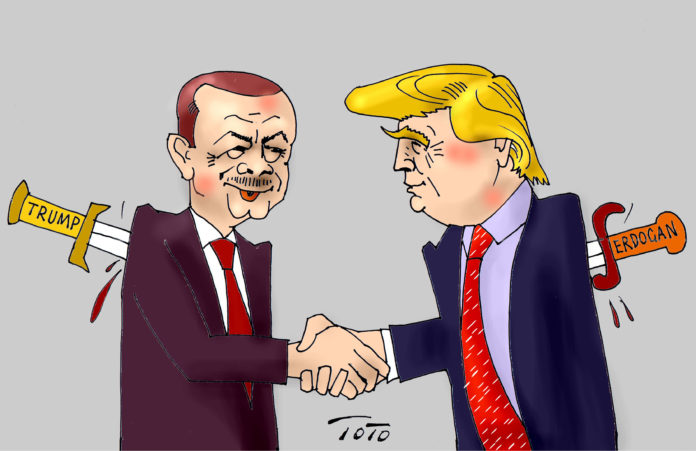By Edmond Y. Azadian
Turkish President Recep Tayyip Erdogan’s fall from grace one day may be as spectacular as his rise, as proven by last year’s coup attempt to unseat him. But for now he will bully his way through, as long as his administration lasts.
He understands well the forces that are reviving and feeding the new Cold War and he can exploit them to promote his country’s as well as his personal ambitions.
One thing he seems to ignore is that the policies he is pursuing domestically run counter to his global ambitions; by eliminating the academics, writers, judges, politicians, journalists and the entire intellectual classes, a group which would have created a common ground with Europe and the civilized world, and playing up his Ottomanist tendencies, he is furthering his nation’s withdrawal from the realm of the international community.
Erdogan’s friendship with Russian President Vladimir Putin after the shooting down of the Russian warplane is as sincere as the relations he is trying to cultivate with US President Donald Trump.
The news outlet Reuters reports from Ankara that “US President Donald Trump and Turkey’s Tayyip Erdogan spoke on Saturday and agreed to continue to work toward stronger ties and regional security. Erdogan’s office said, a day after he lashed out at US authorities for indicting one of his ex-ministers.”








